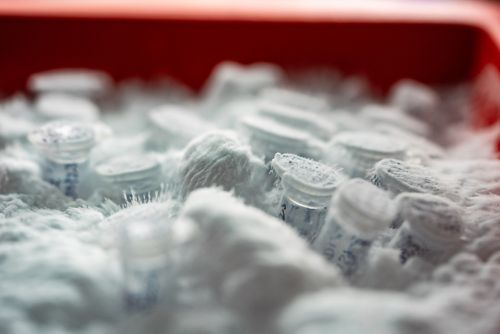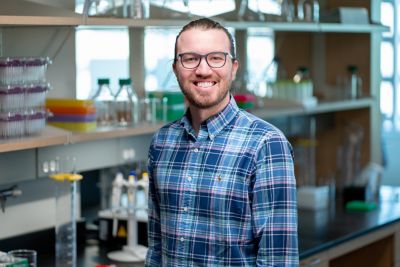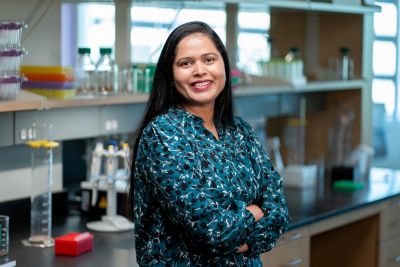St. Jude Family of Websites
Explore our cutting edge research, world-class patient care, career opportunities and more.
St. Jude Children's Research Hospital Home

- Fundraising
St. Jude Family of Websites
Explore our cutting edge research, world-class patient care, career opportunities and more.
St. Jude Children's Research Hospital Home

- Fundraising
Shared Resources: Human Neural Stem Cell Laboratory
Advancing pluripotent stem cell technology to model pediatric neurological disorders
Overview
With increasing evidence of the inadequacy of animal models to faithfully recapitulate all aspects of human diseases, the need for a reliable and robust human disease model has been growing. The advent of induced pluripotent stem cells (iPSCs), our ability to generate them from any individual, irrespective of age and disease condition, and further use them to create any cell type of the human body will fulfill this need. In addition, iPSCs allow the generation of individual-specific disease models that may be used for customized drug screening, cell therapy, etc., making personalized medicine a distinct future possibility. At the Human Neural Stem Cell Laboratory (HNSCL), we utilize iPSCs to develop and optimize protocols that generate reliable and robust in vitro 3D models (called organoids) of normal and anomalous human brains. Brain region-specific organoids derived from control, genetically modified, and patient-specific human iPSCs allow the study of specific pediatric brain tumors and other debilitating neurological disorders within the context of a human microenvironment.

Impact
Through multiple collaborations within the department, HNSCL has demonstrated the utility of iPSC-based models of specific regions of the human brain (organoids) in recapitulating and modeling physiologically significant aspects of brain tumors and neurodevelopmental disorders. From faithful recreation of patient-specific retinoblastomas to discovering a novel, evolutionarily conserved neuroprotective pathway in humans, we have shown that iPSC-derived brain organoids have broad applications. To date, we have developed protocols to generate human cortical, retinal, thalamic, cerebellar and spinal cord organoids, as well as assembloids to model circuitry.
In addition to developing methods and tools to generate and validate organoids, we constantly update our existing protocols in keeping with advances in the field to improve the efficiency, reliability and physiological relevance of our model systems. We also employ a rigorous battery of assays to validate the iPSCs we use for various projects. This includes quantitative RT-PCR and immunostaining for pluripotency markers, Trilineage differentiation assay, Methylation analysis, karyotyping and copy number variation analysis.
Equipment
hiPSC culture and differentiation into brain organoids
- Six Tri-gas Incubators
- Three Dedicated Biosafety Cabinets
- Two Laminar Flow Hoods
Organoid visualization, manipulation and imaging
- Zeiss AxioObserver D1 fluorescence microscope
- Zeiss Stemi 508 stereomicroscope fitted with DS-Fi2/DS-L3 camera and controller
- Zeiss SteREO Discovery V12 fluorescence stereomicroscope
- Resources and expertise to perform optical clearing, immunostaining and 3D confocal imaging of organoids
Long-term organoid growth and maintenance
- Nine ABLE Biott 3D Magnetic Stir and Bioreactor Systems
- Three Orbital Shakers
Organoid and iPSC validation
- Axion Biosystems MaestroEdge Multielectrode array
- Resources and expertise to perform Quantitative RT-PCR with custom TaqMan Arrays, and immunostaining (whole mount and cryosection)
Selected Publications
About the Director

Dr. Anjana Nityanandam obtained her bachelor’s degree with a gold medal in Biotechnology from Delhi, India, before moving to the Max Planck Institute for Experimental Medicine in Gottingen, Germany, as an EU Marie Curie Actions Fellow to pursue a PhD in Developmental Neuroscience. After completing her degree with the honor of summa cum laude under the tutelage of Dr. Victor Tarabykin (now at Charité, Berlin), she joined the lab of Dr. Kristen Baldwin (now at Columbia) at the Scripps Research Institute in La Jolla, CA, for postdoctoral research. There, she obtained training in human iPSC technology and its utilization in modeling neurodevelopmental disorders such as Mowat-Wilson Syndrome. In 2016, Dr. Nityanandam applied her training and expertise to establish the Human Neural Stem Cell Laboratory at St. Jude. Here, she continues to pursue her interests in stem cell technology by developing and optimizing novel iPSC-based 3D model systems to help study pediatric brain tumors and other debilitating neurological disorders.
The team

- Kyle Newman, MS
- Lead Researcher

- Priyanka Patel, PhD
- Scientist